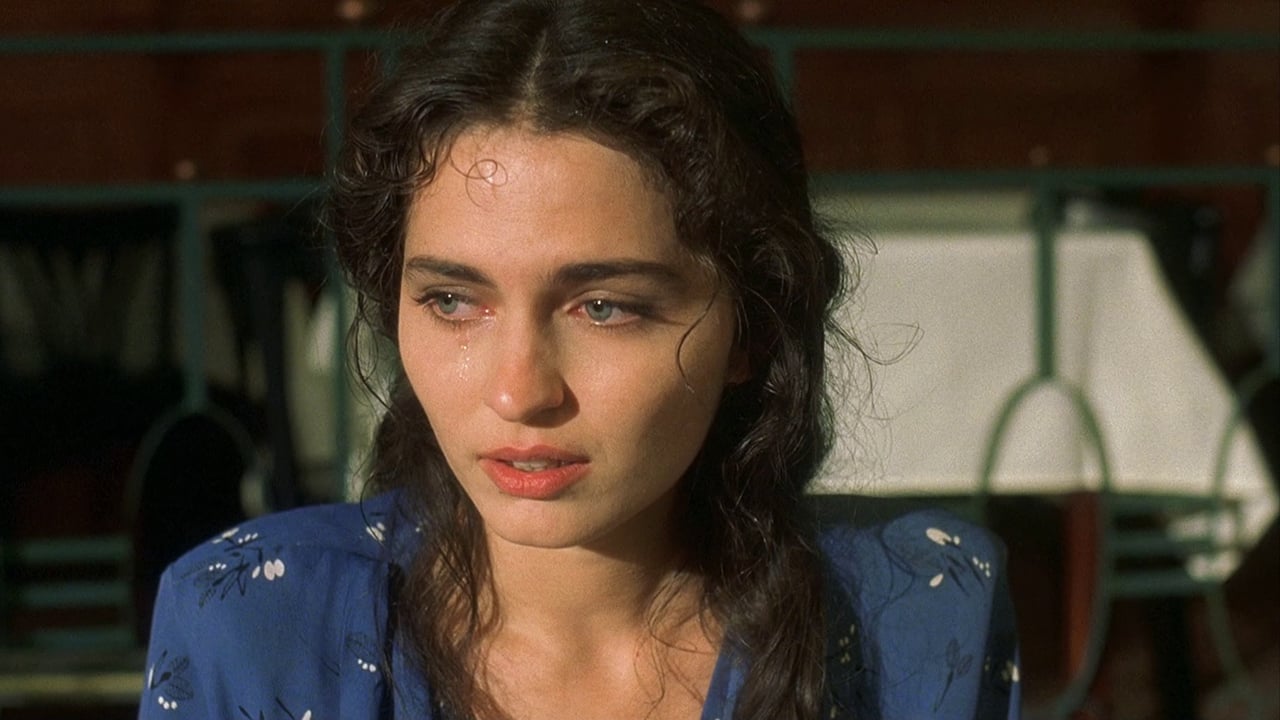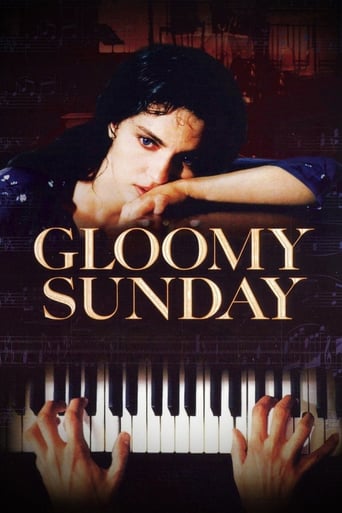

Gloomy Sunday is a broad romance, smoothly crafted, and sometime charming film that fights off its imperfections: predictability and a crowbarred Holocaust subplot which is contrived. But, there is enough in the fine acting, elegant settings and locations for the viewer to easily stick with it and be entertained for its old fashioned fanciful romance. The schmaltzy soundtrack is to the film's credit.
... View MoreI wrote this brief review because it was the first movie I went to with my former partner in 2003, in that small cinema mentioned in trivia, in Christchurch, New Zealand, now destroyed by the earthquake of February 2011. She subsequently gave me a DVD of the movie which I went to watch the other night only to discover it is gone.So I guess this movie is especially poignant to me. But emotions aside, the reason it ran so long in Christchurch is that it very, very good, albeit not perfect. I will not go over the story line, which others have well commented upon. But what, IMHO, sets this movie aside is the haunting atmosphere, the complexity of the characters, and their relationships. Others will struggle with the German soundtrack and English subtitles but that, in my opinion, adds to its mystery.It is really two stories; one the love triangle, the other the outcome of the Nazi invasion of Hungary, but it does manage to pull these together at the end. It is a bit contrived but ultimately does work.The acting is a bit uneven (Hans, the SS officer is a bit off), but otherwise everything about this is great. You will probably never see this in a theatre or on television but for serious film collectors, this is highly recommended.
... View MoreNow here is a film that lulls the viewer into believing it's about love, at least the love poets and composers write about, a bit idealized but satisfying and even a little destructive. Our protagonists go through life in a state of wide-eyed bliss and it's all very well done and acted. I really loved this part which lasts much of the film until the Nazis take over. Then things get from bad to worse until the end wraps around the beginning and it all becomes clear. What a brilliant concept and what a surprise. This is what brought me to write this review but it's only the icing on the cake. There's so much more here to feast your eyes and ears on, the sets, the costumes, the music, the dialog, the performances!
... View MoreContains minor spoilers: Well as you can see in the trivia, the film has been playing at the Arts Center Academy Cinema in Chch, NZ for the past 5 years. I live in Chch, NZ and went to see it yesterday in this very cinema. Cinema- well it's actually a black room with 11 seats, 2 speakers and a 60 inch screen, and a small café outside of it. Going 5 years and still going apparently...Now I'm no drama lover. Gimme action, horror, scifi any day. Anything with sex and violence and explosions are good. So I had reservations about seeing this. But wow I must say, this is a contemporary classic. It's the sort of film they must be showing film students in Germany, since the film is in German with subtitles.The 4 main characters are Laszlow (restaurant manager), Ilona (Waitress), Andras (Composer) and Hans (Nazi corporal). It's set in Nazi occupied Hungary during the time Hitler was effecting his 'final solution'. The title 'Gloomy Sunday' comes from the song the composer writes which gains him notoriety, and attracts attention to the (Jewish) restaurant. The film is largely about the love triangle between Andras, Ilona and Laslow. At least until Hans returns half way through the film.The character of Hans appears initially as a lonely, rejected young German man, who after being rejected by Ilona, comes back years later a changed man, a Nazi colonel on charge of the rounding up of Jews in his area. He turns out to be one of the films most 'important' characters. (I won't give away the ending).So all in all, there's romance, there's (some) comedy, there's mystery, and it's all tied in with the Nazi's 'final solution'. After you finish the film you walk away feeling the film is very thought provoking... still thinking about each of the characters and how they changed during the course of the film. It's also worth noting too, that this is not an 'artsy fartsy' film. The dialouge is simple and the story is easy to follow. WHich is appreciated since I don't speak German and was reading subtitles.So anyway, if you don't like dramas but you do like a genuinely good movie, then give this one a try.
... View More